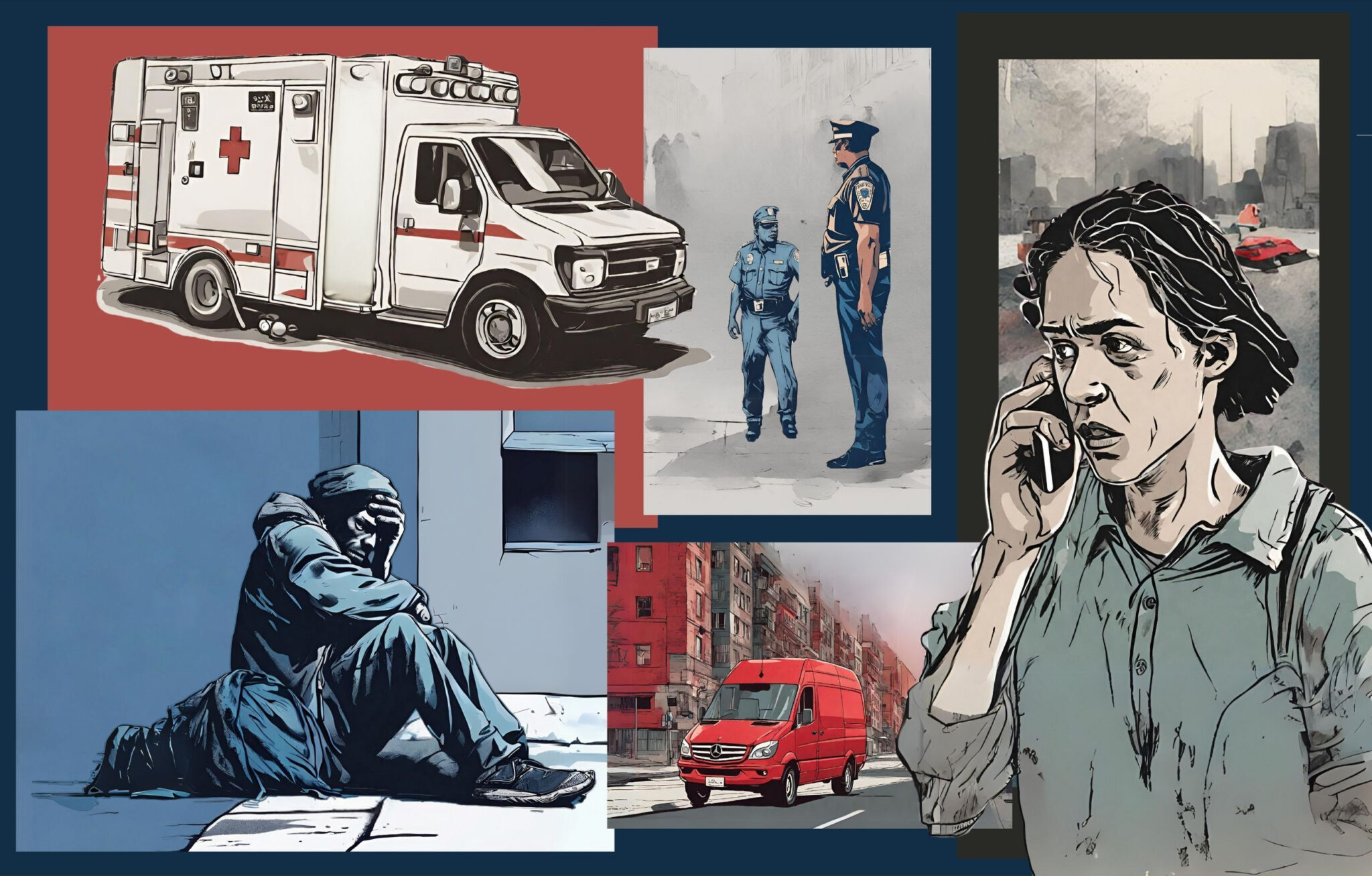You Report an Unhoused Person in a Mental Health Crisis. This Is What Happens Next

San Francisco Public Press by Madison Alvarado and Yesica Prado, May 7, 2024: Myriad city teams respond to people in severe distress, who are often homeless and return to the streets after receiving services.
In San Francisco, it is not uncommon to cross paths with a person experiencing homelessness in the throes of a mental health crisis. The scene can be tragic, confusing and sometimes might feel dangerous.
Bystanders might wonder how to summon help from the city — and what will happen if they do.
We created a flow chart to answer those questions, though it does not capture all possible outcomes. Scroll down or click here to find it.
Cases traverse a tangle of pathways, through handoffs between dispatchers and myriad public workers. The person in crisis might spend days or weeks tumbling through the criminal justice system or health care facilities. They might get a reprieve from the outdoors in a sobering center or a communal recovery setting, where they can access food and information to help them seek social services. Their path depends on many factors, like the availability of the Street Crisis Response Team, what the bystander tells city personnel and whether responders can calm them.
Often, the person returns to where they started: the streets.
San Francisco emergency dispatchers can receive tens of thousands of calls per year about mental health incidents, including suicide attempts. According to a recent study by a city working group, there were nearly 13,700 recorded involuntary psychiatric detentions in the fiscal year that ended in 2022 — a conservative tally as the analysis did not include some facilities in San Francisco. The study found that African American residents were detained at disproportionately high rates, and unhoused people were frequent users of psychiatric emergency services.
The San Francisco Public Press spent months investigating how people can be detained involuntarily due to mental health crises and what happens to them afterward. The psychiatric detentions are commonly called “5150” holds, a nod to the section of state code that defines the criteria for this intervention. We examined hundreds of pages of call records, department procedures and training documents, and interviewed staff at numerous city departments directly involved in crisis response to map the city’s system of care.
Read more from San Francisco Public Press here.




